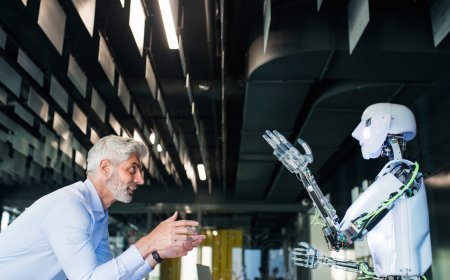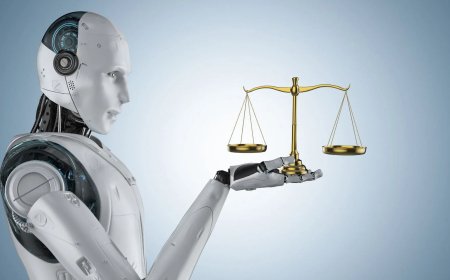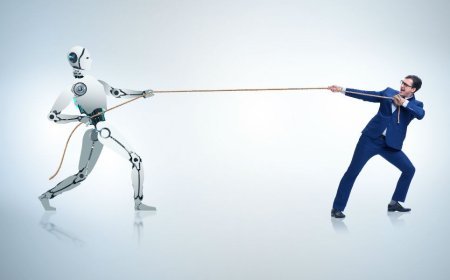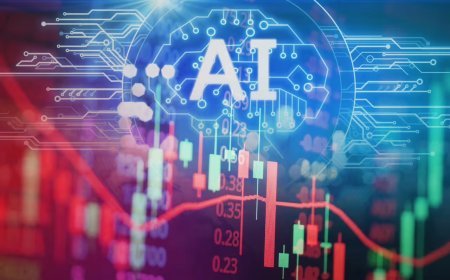How AI Will Reshape the Job Market: Winners, Losers, and the Jobs That Don't Exist Yet
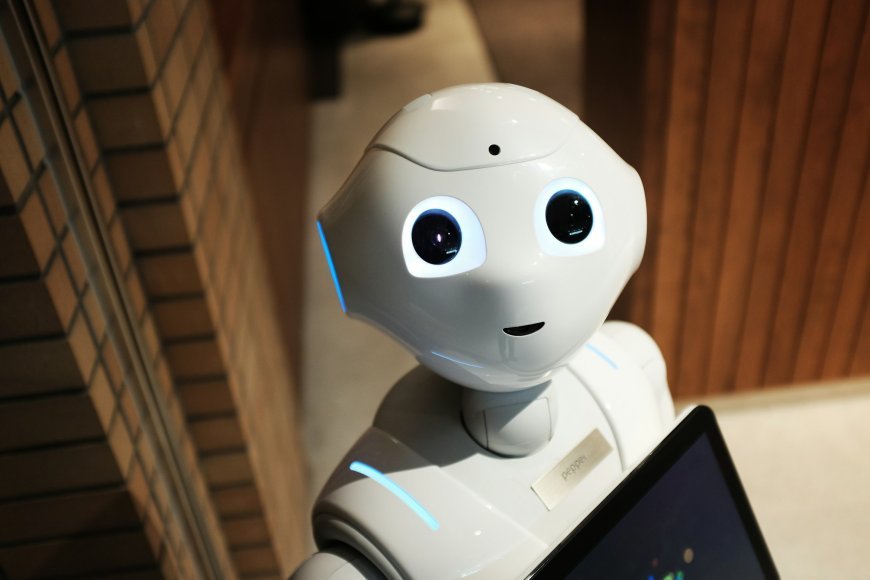
AI won't replace all workers, but it will replace many workers who don't adapt to working with AI. The transformation is happening faster than most people realize, and the economic impacts will be as significant as the Industrial Revolution - but compressed into decades instead of centuries.
The Jobs AI Eliminates First
Routine cognitive work: Data entry, basic bookkeeping, simple legal research, and customer service scripts are already being automated. These jobs paid $15-25/hour and employed millions of people.
Content creation at scale: AI can write basic news articles, create marketing copy, and generate simple graphics faster and cheaper than humans. Freelance writers charging $20/hour for basic content can't compete with AI that works for pennies.
Basic analysis and reporting: Financial analysts who spend time gathering data and creating standard reports will be replaced by AI that can do the same work in minutes instead of hours.
The Jobs AI Creates
AI trainers and prompt engineers: Someone needs to teach AI systems how to perform specific tasks and optimize their outputs. These roles pay $80,000-$150,000+ and didn't exist five years ago.
AI ethics and safety specialists: As AI becomes more powerful, companies need people to ensure it's used responsibly and doesn't create legal or reputational risks.
Human-AI collaboration roles: Many jobs will become hybrid positions where humans provide creativity, judgment, and interpersonal skills while AI handles data processing and routine tasks.
The Surprising Survivors
Skilled trades: Plumbers, electricians, and HVAC technicians work in unpredictable environments with physical dexterity requirements that are extremely difficult to automate. These jobs are actually becoming more valuable as other work gets automated.
Personal care services: Hairstylists, massage therapists, and personal trainers provide human interaction and customized service that people value over AI alternatives.
Creative and strategic roles: While AI can generate content, it can't replace human creativity, strategic thinking, and the ability to understand complex human motivations and cultural nuances.
The Income Disruption
AI is creating massive productivity gains, but the benefits aren't distributed equally. Companies using AI effectively see profit margins expand dramatically, while workers in automated roles see their wages stagnate or disappear entirely.
This could lead to a small class of highly-paid AI-enhanced workers and business owners, while a larger group faces unemployment or underemployment. The economic gains from AI might concentrate among capital owners rather than workers.
The Skills That Matter
AI literacy: Understanding how to work with AI tools will become as important as computer literacy was in the 1990s. Workers who can use AI to enhance their productivity will outcompete those who can't.
Complex problem-solving: AI excels at routine tasks but struggles with novel problems requiring creativity, empathy, and multi-step reasoning across different domains.
Interpersonal skills: Sales, negotiation, team leadership, and customer relationship management remain distinctly human capabilities that complement AI rather than compete with it.
The Speed Problem
Previous technological revolutions took decades to reshape labor markets, giving workers time to adapt. AI is advancing much faster - capabilities that took years to develop now improve in months.
A 45-year-old accountant whose job gets automated by AI might need to retrain for a completely different career, but many training programs take 2-4 years while AI capabilities advance every few months.
Economic Policy Challenges
If AI dramatically increases productivity while displacing workers, society might need new approaches to ensure the benefits are shared. Some economists propose universal basic income, shortened work weeks, or taxes on AI systems to fund retraining programs.
But these policies are theoretical - no one knows what will actually work at scale. Meanwhile, the job displacement is happening now.
Individual Survival Strategy
Focus on developing skills that complement AI rather than compete with it. Learn to use AI tools in your current field to increase your productivity. Develop distinctly human skills like leadership, creativity, and complex communication.
Most importantly, stay adaptable. The jobs that AI creates tomorrow might not exist today, but workers who can learn quickly and adapt to new tools will thrive in an AI-enhanced economy.
What's Your Reaction?
 Like
0
Like
0
 Dislike
0
Dislike
0
 Love
0
Love
0
 Funny
0
Funny
0
 Angry
0
Angry
0
 Sad
0
Sad
0
 Wow
0
Wow
0















